Braid is a puzzle-platformer, drawn in a painterly style, where you can manipulate the flow of time in strange and unusual ways. From a house in the city, journey to a series of worlds and solve puzzles to rescue an abducted princess. In each world, you have a different power to affect the way time behaves, and it is time's strangeness that creates the puzzles. The time behaviors include: the ability to rewind, objects that are immune to being rewound, time that is tied to space, parallel realities, time dilation, and perhaps more.
Braid treats your time and attention as precious; there is no filler in this game. Every puzzle shows you something new and interesting about the game world.
Key features:
- Newly added Steam Cloud support
Save your in-progress game to the cloud, then play where you left off from on any Steam connected computer.
- Forgiving yet challenging gameplay:
Braid is a 2-D platform game where you can never die and... [Read All]
Braid is a puzzle-platformer, drawn in a painterly style, where you can manipulate the flow of time in strange and unusual ways. From a house in the city, journey to a series of worlds and solve puzzles to rescue an abducted princess. In each world, you have a different power to affect the way time behaves, and it is time's strangeness that creates the puzzles. The time behaviors include: the ability to rewind, objects that are immune to being rewound, time that is tied to space, parallel realities, time dilation, and perhaps more.
Braid treats your time and attention as precious; there is no filler in this game. Every puzzle shows you something new and interesting about the game world.
Key features:
-
Newly added Steam Cloud support
Save your in-progress game to the cloud, then play where you left off from on any Steam connected computer.
-
Forgiving yet challenging gameplay:
Braid is a 2-D platform game where you can never die and never lose. Despite this, Braid is challenging — but the challenge is about solving puzzles, rather than forcing you to replay tricky jumps.
-
Rich puzzle environment:
Travel through a series of worlds searching for puzzle pieces, then solving puzzles by manipulating time: rewinding, creating parallel universes, setting up pockets of dilated time. The gameplay feels fresh and new; the puzzles are meant to inspire new ways of thinking.
-
Aesthetic design:
A painterly art style and lush, organic soundtrack complement the unique gameplay.
-
Nonlinear story:
A nonlinear fiction links the various worlds and provides real-world metaphors for your time manipulations; in turn, your time manipulations are projections of the real-world themes into playful "what-if" universes where consequences can be explored.
-
Nonlinear gameplay:
The game doesn't force you to solve puzzles in order to proceed. If you can't figure something out, just play onward and return to that puzzle later.

 Braid
Braid
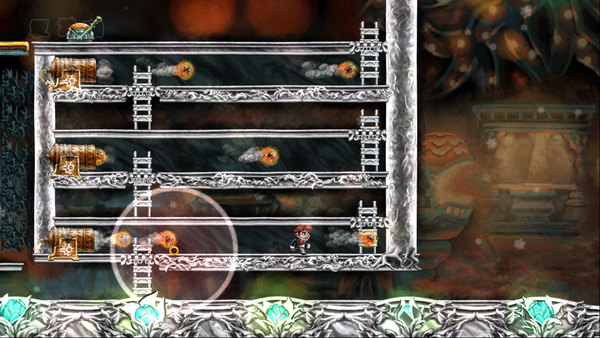
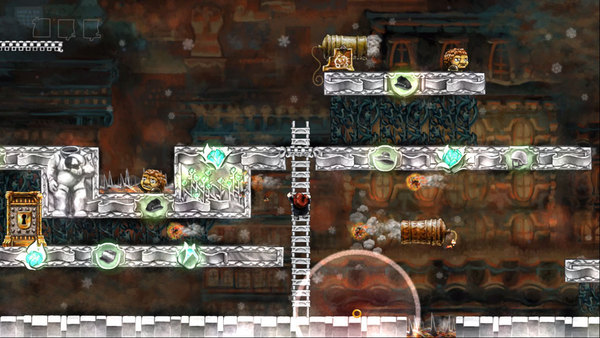
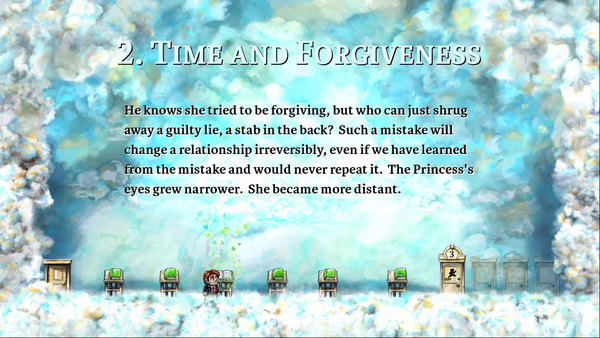
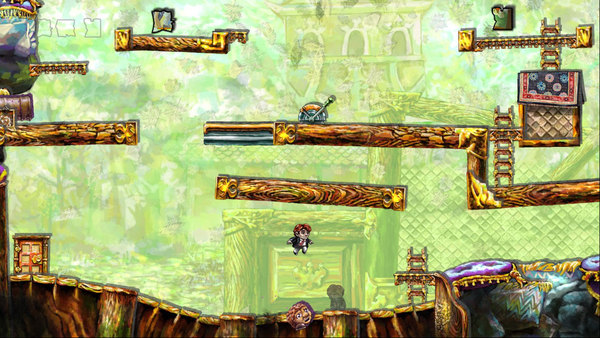
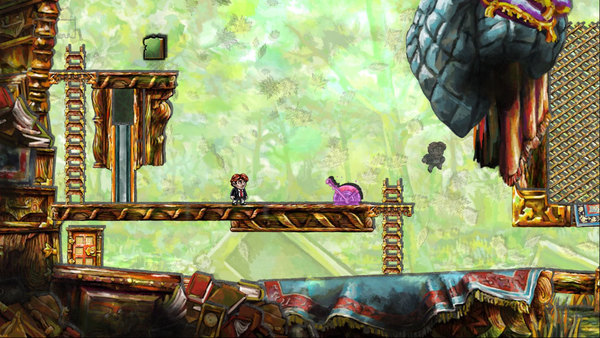
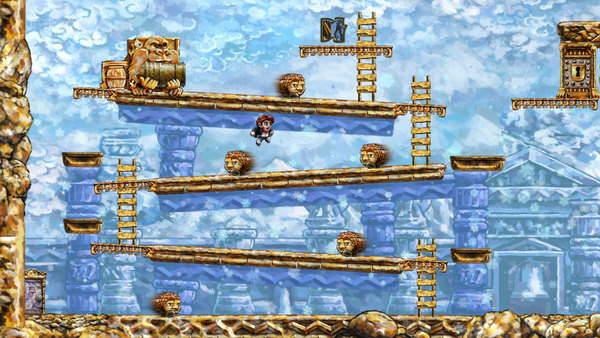
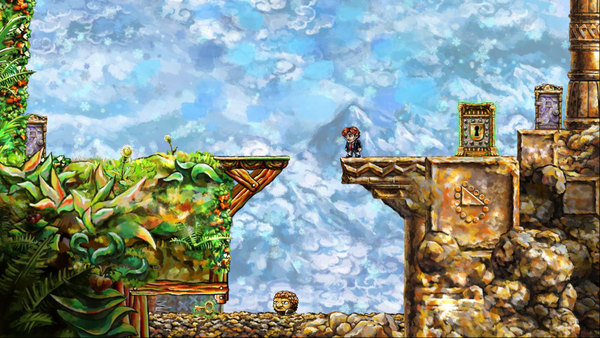
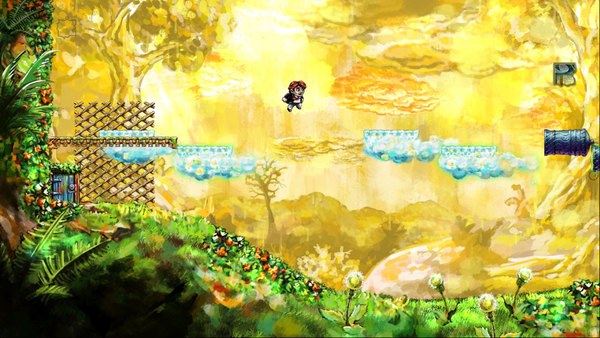
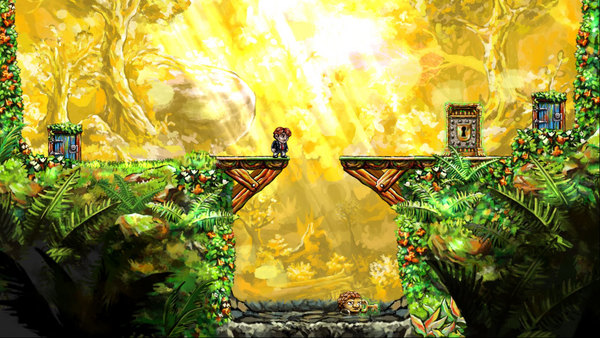
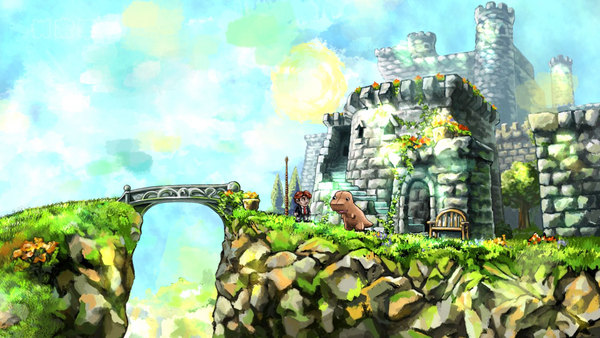
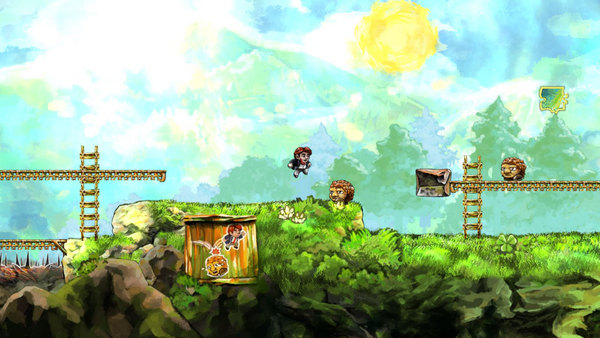
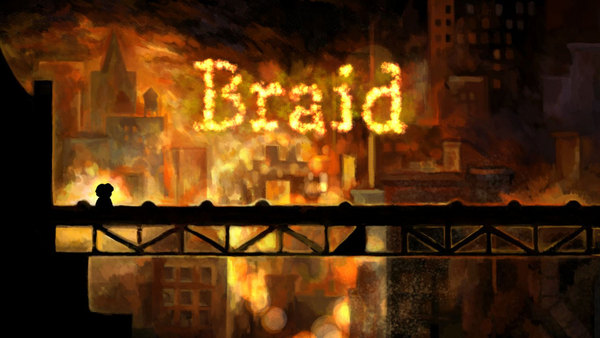


One thing you can do with games is make statements. I am glad you spoiled the game here so I could find out what the reveal in Braid is, thanks for that. Does the reveal for Tim's character make sense with the style of Braid? Perhaps not.
I found the gravity of a nuclear assault on life and the landscape to be fairly poignant in Fallout. Just existing in an environment can clue you in to what a designer is trying to say.
That said, starting with a known concept like a Princess and then flipping that over to have the Princess be undoing something they believe is evil is interesting.
Did he start the player out with some regret and baggage or did the reveal just kind of come out of nowhere?
The block text kind of hints at regret, but personifies the Princess in a way that makes it almost explicit that it's an actual person. I may have been assuming too much, but it really just came out of nowhere. I think Fallout works as a commentary on nuclear war because it takes concepts we are all familiar with such as anger, violence, and other base emotions and pasts them on a recognizable backdrop. Braid uses a fantasy inspired theme (although there are hints in the artwork) that doesn't really support that kind of left turn at all. I don't usually like to say stuff like this, but it felt like it totally M. Night Shyamalan'ed at the end.
Seems you either love or hate that story reveal. I was torn. It was interesting, compelling, and poignant, yet considering the game it was a part of, it didn't quite work. I think had it been done a little differently or on a different kind of game or with a different setting, it would have been awesome.
That makes sense.
@Will do you mean a later M. Night film, because I felt the reveals in his first couple up including Lady in the Water were pretty awesome. (my taste)
I haven't seen any of his movies since Signs to be honest.
No problem, but I get what you mean, total switcheroo but wasn't stylistically earned.